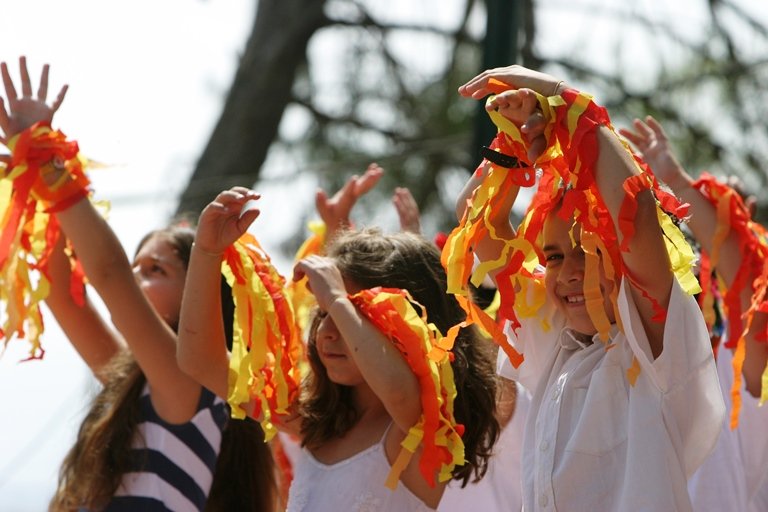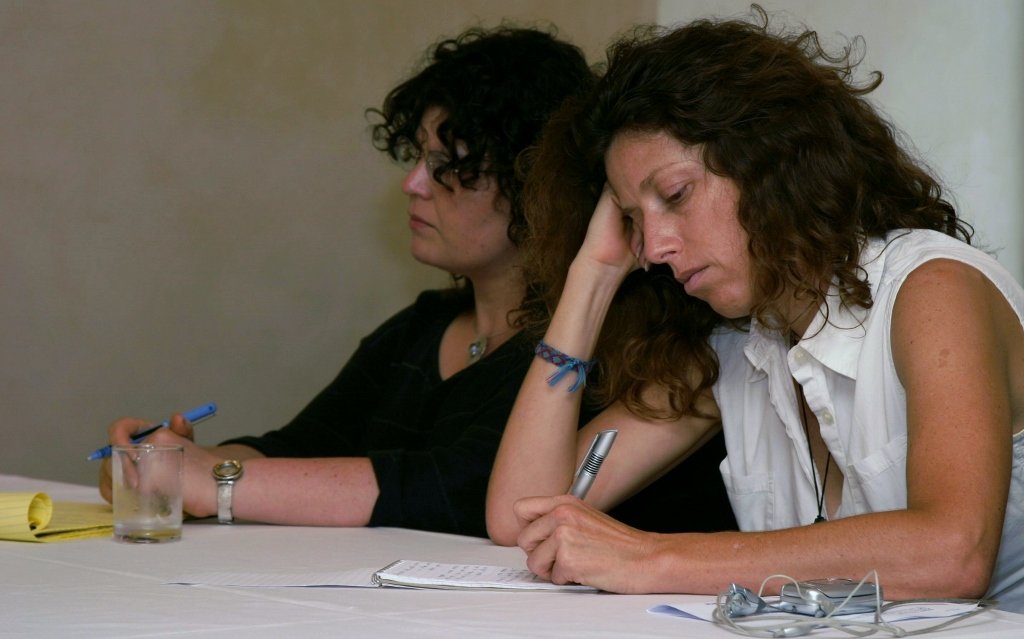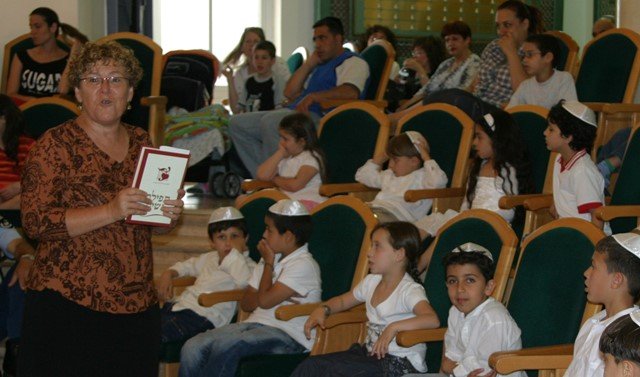Share This Story, Choose Your Platform!
A total of eleven of the original 43 parties have made it to the Knesset. In addition to the two major parties, the Likud under Benjamin Netanyahu (36 seats) and the new party “Kachol-Lavan” (Blue-White) under Benny Gantz (35 seats), there are the following parties in the 21st Knesset of the State of Israel: the Sephardic-ultra-orthodox Shas party (8); the Ashkenazi-ultra-orthodox United Torah Judaism (7); the Arab parties “Hadash-Ta’al” (6) and “Balad-United Arab List” (4); the social-democratic Labor party (6); “Israel Beiteinu” under Avigdor Lieberman (5), backed mainly by Russian new immigrants; the Rightist Union (5); “Kulanu” (All of Us) under former Finance Minister Moshe Kachlon (4); and finally the leftist “Meretz” party (4).
The Likud, the Ultra-Orthodox, Kulanu, the Rightist Union and Israel Beiteinu gained 65 out of 120 seats. Sixty future members of the Knesset have already from the outset committed themselves to Netanyahu’s coalition. Immediately after the elections the only question remained which price the former Defense Minister Avigdor Lieberman would ask for himself and his four party comrades for joining the coalition. From the outset little room remained for maneuvers and speculation.
As a reminder: When Netanyahu had forbidden Lieberman at the end of 2018 a harsher military action against Hamas, this led to early elections. Now Lieberman may be asking for the Ministry of Defense, as well as for a commitment to have a free hand against Hamas in the Gaza Strip.
Rumors that a grand coalition of Likud (36) and Kachol-Lavan (35) might be on the horizons have been harshly rejected by the Kachol-Lavan leadership.
Referendum on the person of Netanyahu
It is clear that Netanyahu was able to secure a fifth term. His opponents have done everything to disable him. Now they complain: Whenever it seemed that Netanyahu was losing momentum, be it by rocket attacks from Gaza, criminal charges or suspicion of corruption, he always succeeded in regaining the initiative. And then, of course, at the right time, he was always supported from abroad, be it from Donald Trump, Vladimir Putin or even Brazilian President Jair Bolsonaro.
Ultimately, these elections were a referendum on the person of Benjamin Netanyahu and his policies. And the Israeli people have expressed their will quite clearly. 366,049 votes or almost nine percent of all votes went to parties that did not manage the 3.25% barrier – i.e., they were lost. Voter turnout in Israeli Arab society has been lower than ever.
The big loser is Israel’s left
Benny Gantz and his partners never tire of emphasizing the achievement of stomping a new party out of nowhere and becoming the second largest force in the Israeli parliament right from the start. Seen from a distance this sounds impressive.
On closer inspection and especially with some knowledge of history, the success of Kachol-Lavan, however, rather looks like total failure. First of all, it is relatively easy in Israel’s political party system and society to found a new party for new elections, above all if there is a slogan that unites significant parts of the electorate. In this way, for example, Ariel Sharon succeeded to retreat from the Gaza strip in 2005 with backing of his newly founded party “Kadima” – which is not existent any more.
Furthermore, Kachol-Lavan set out with the explicit objective to dismantle Netanyahu. But Netanyahu was not at all dismantled, rather has now caught up with David Ben-Gurion’s record. Like Israel’s legendary founding figure, Netanyahu was elected prime minister five times. In July, he will most likely pass Ben-Gurion’s time as prime minister in office.
It is true Kachol Lavan was able to gather one million Israelis. However, instead of harming Netanyahu, the new party dismantled Israel’s traditional center-left parties. Kachol-Lavan may have won one or the other vote from Netanyahu. In fact, the Likud has lost two mandates compared to the previous legislature. Crucially, however, the new party of the generals Gantz, Ashkenazi and Ya’alon, along with their media star Lapid, “cannibalized” the Labor Party and the communist Meretz.
The left-liberal HaAretz daily prophesies Kachol-Lavan great difficulties in terms of inner cohesion as a functional opposition and pessimistically predicts concerning their members of Knesset: “Don’t be surprised if some of them find their way into Netanyahu’s coalition before long.”
New faces
Among the 120 members of the new Knesset, there are 48 newcomers. Almost half of them belong to Kachol-Lavan. There is, for example, the 37-year-old Gadeer Mreeh, the first Druze woman in the history of Israel, who was elected to the Knesset. But also the 40-year-old Omer Yankelevich, the second ultra-orthodox woman who has ever worked in Israel’s legislature. Being a professional lawyer, Yankelevich is mother of five children and has made a name for herself as a social activist. On the one hand, she is a vociferous advocate for women’s rights. At the same time, however, she is very much in favor of gender segregation as demanded by her ultra-orthodox community.
Another of the “new faces” is Ofer Cassif, the only Jewish member of the Arab Hadash party. In 1987 he was one of the first Jewish soldiers to refuse service in the occupied territories. Once he described then-Justice Minister Shaked as “neo-Nazi scum.” The number of openly gay members of Knesset increased from two to five, or by 150 percent.
Christian Zionists might notice the most that Temple Mount activist Yehuda Glick is no longer present in the 21st Knesset. Glick was widowed last year and can now devote much time to his new marriage.
The losers
The biggest loser on election night in April 2019 was definitely the Labor Party. The Social Democrats lost two-thirds of their seats, the left-wing bloc as a whole about half of its seats in the Knesset. Labor and its predecessor that had founded and dominated the state of Israel for decades, was thus almost wiped out from the party landscape of Israel because their constituents flocked around Kachol-Lavan to disempower Netanyahu. Likewise, many traditional Meretz voters chose Kachol-Lavan this time.
Now, Israel’s Social Democrats are supposedly considering merging with Meretz and possibly some Arab parties. As soon as such considerations became known, however, the Arab communists (Hadash) loudly excluded any cooperation with “hypocritical” Meretz.
Observers see Israel’s liberal Zionism in an existential crisis. The last Social Democrat as head of government, Ehud Barak, left office 18 years ago. Hardly anybody remembers him favorably. Nowhere on the horizon is there even the slightest chance for any Social Democrat to replace Netanyahu. Meretz only survived because it sparked the SOS signal “Save Meretz from sinking” to the public at the very last minute.
The “New Right” of Education Minister Naftali Bennett and Justice Minister Ayellet Shaked failed to pass the 3.25% barrier. It lacked only 1,462 votes. Interesting now are rumors of voices within the Likud calling on Netanyahu to offer a post to Shaked in his new government. Even within the Likud, Shaked is considered “popular and loved”.
What’s next?
With Netanyahu, Israelis have voted for continuity and stability. Israel’s former ambassador to the US, Michael Oren, sums it up: “Our economy is excellent, our foreign relations were never better, and we’re secure… we know him, the world knows him – even our enemies know him”.
As soon as Netanyahu has been commissioned by President Reuven Rivlin, he will have 28 days to form a new government. Should he request the statutory extension of the deadline, the government would have to stand no later than June 5. The dream of a two-state solution with Israel making drastic concessions to the Palestinians has moved with these elections farther into the distance than ever before in this millennium.






















